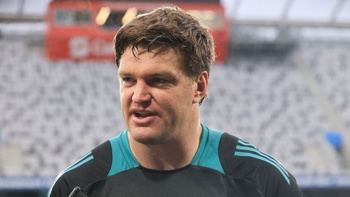Slavery, murder, starvation and abuse.
A Kiwi investigator is shining a light on the dark side of the fishing industry after his investigation sparked key changes.
The world's biggest producer of tinned tuna, Thai Union, has agreed to reduce slavery and illegal fishing in its supply chain thanks to private investigator Tim Mckinnel and Greenpeace.
He told Larry Williams industry-wide change is needed because the fish we eat is tainted by horrific conditions at sea.
"Several dozen vessels, they're cockroach ridden, you've got open pitted toilets, people told us they worked for years and get kicked off the boats and paid nothing."
McKinnel said the changes Thai Union has agreed to are incredibly important.
"They are a global giant and we believe from our analysis that they are responsible for one in five tins of tuna globally and for them to be making such a substantial commitment to human rights and the environment is impressive."
LISTEN ABOVE AS MCKINNEL SPEAKS WITH LARRY WILLIAMS
Earlier McKinnel told the NZ Herald about how slavery might be defined today when he mentions the use of a slug gun.
"Is it debt-bondage or do you have to be in chains?" says the Greenpeace investigator.
"I interviewed one guy who worked on a tuna longliner where his captain would shoot his crew with a slug gun from the bridge to get their attention.
"They were working in the tropics but they took to wearing raincoats to protect themselves.
"I don't know how you would define that other than criminal violence but these guys would come into port and couldn't leave the boat because they were owed too much money."
McKinnel doesn't doubt that human trafficking is rampant in the fishing industry, and, he says, "We are kidding ourselves if we think New Zealand isn't tainted by these issues."
New Zealand imports, for example, more than 500 tonnes of mostly tuna products each year from Thai Union, , the giant fishing company targeted by a Greenpeace campaign.
Thai Union and the environmental lobby group jointly announced today a range of plans to boost fishery sustainability and improve the treatment of workers throughout its supply chain.
McKinnel, best known for his leading role exposing the miscarriage of justice suffered by Teina Pora, has in recent years worked as research and investigation manager on Greenpeace's tuna campaign.
It was no secret, he tells the Herald, that there were issues around labour standards and over-capacity in terms of the amount of fish being taken out of the sea. To be a credible campaign they needed evidence.
That involved hearing the stories of fishermen and factory workers.
The investigation was headed by Greenpeace New Zealand and involved work by staff in West Africa, Taiwan, Thailand, remote islands in the Indian Ocean and landlocked Cambodia where migrants workers are recruited.
They used local conduits to help with access and language barriers. "It can be challenging. There is a veil of secrecy that shrouds the fishing industry and it is not always easy to get access to vessels or workers."
"Some fishermen we spoke to would work for years and not get paid a cent. Others we calculated were earning 13 or 14 cents an hour.
"They worked 20 or 22 hours a day. Money was meant to be remitted back to their families in their home countries but that would never eventuate.
"We met dozens and dozens of fishermen who were debt bonded, so they were trapped by debts they'd incurred from recruitment fees."
Agents in countries such as Cambodia and Burma charged exorbitant fees to arrange fishing jobs that on the face of it appeared to be paid quite well, McKinnel says.
Some had applied to work in fish factories or on boats other than tuna longliners but found themselves tricked, indebted and trapped.
They were lured by the chance to earn much more than they could if they stayed in their village. "Many never get paid what they are promised, if anything. They are disposable commodities to many of the fishing companies.
"The conditions they live and work in are horrendous. You wouldn't, living in New Zealand, have your dog live in these sort of conditions.
"We went on many of the boats. There were open-pit toilets next to where someone's head lies when they get their one or two hours' sleep a night."
One Indonesian, a 43-year-old whom McKinnel names only as Suranto, had initially seemed happy enough with his job on a Taiwanese tuna longliner. He took the Greenpeace agents on board. "It was disgusting, an awful hovel with cockroaches and the most awful smell," says McKinnel.
Suranto told them more as time passed: about beatings if they didn't do as they were told and minimal pay.

Tim McKinnel. (Photo / Duncan Brown)
Jumping ship came with the risk of never being paid what they were owed, the risk of being blacklisted and of arrest because in some ports their immigration status was far from clear, said McKinnel, who previously worked as a policeman in South Auckland.
"I've seem some pretty horrible things here in New Zealand in terms of crime but this was different because of the extent of it.
"As far as I could see the global tuna-fishing industry has for years relied on exploited migrant fishers. I suspected there would be sad stories, horror stories, but what I didn't expect was the extent of it, of the misery that exists at sea. It is so hidden . . . over the horizon.
"So much of it is around the business model that is designed to deliver cheap tuna, cheap protein."
Do Kiwi consumers care only about price?
People don't know, he says, when they see a cheap can of tuna on a shelf, whether it is "slave-tainted, or fished in an environmentally destructive way".
Providing information was a big part of Greenpeace's tuna campaign, looking behind the brands and the advertising by presenting human stories and simple explanations about the problems.
McKinnel described the agreement with Thai Union announced today as one of the most substantial in Greenpeace's history with a global fishing giant.
One reason Thai Union became a target was a belief the organisation could help lift the game of the global fishing industry. If it implemented measures agreed it could, says McKinnel, claim to be a leader on the twin issues of the treatment of fishermen and of the fishery.
Thai Union, which is Thailand-based but operates globally, announced a new strategy in 2015 called SeaChange which is focused on safe and legal labour practices, marine conservation, responsible sourcing, and community engagement.
The SeaChange strategy emerged at a time of pressure from environmental groups, the media and legal risks.
This included an investigations by news agency Associated Press and the New York Times. The latter cited a former slave fisherman stating he had been held captive on a vessel supplying Thai Union's factories.
The company was also implicated in a year-long study of Thailand's shrimp industry which reported "indicators of forced labour, trafficking, and child labour to be present among sea-based and land-based workers".
Reforms announced with Greenpeace include labour reforms, halving by 2020 the number of fish-aggregating devices used, extending its ban on transhipment across its global supply chain and ensuring all tuna longline vessels have human or electronic monitoring.
Fish-aggregating devices float in the ocean, with GPS devices attached, creating their own eco-systems. When netted, everything is caught including turtles and sharks, while transhipment of catches at sea enables vessels to continue fishing for months or years.
The biggest issue, McKinnel believes, is sustainability. Thousands of new vessels have been launched in recent decades with technological advances that make it possible to catch more than ever.
Those fishing to supply their local communities have told Greenpeace about huge reductions in their catches, something they blamed on industrial fishing.

Albacore tuna is stacked and weighed before being shipped for processing into canned tuna. Greenpeace is exposing out of control tuna fisheries. (Photo / Supplied)
McKinnel: "I went to one place called Senya, in Ghana, and the catch reductions were so severe that some people we spoke to were selling their children to go fishing in the inland lakes. This is because they are not catching enough food, they can't feed their children, can't pay for their education.
"One 12 year-old I spoke to was sold by his parents when he was 10 to an agent for US$100 [$138.25]. He had spent two years working for a fisher on a lake. The driver for that was a lack of fish in coastal waters."
Take your Radio, Podcasts and Music with you









